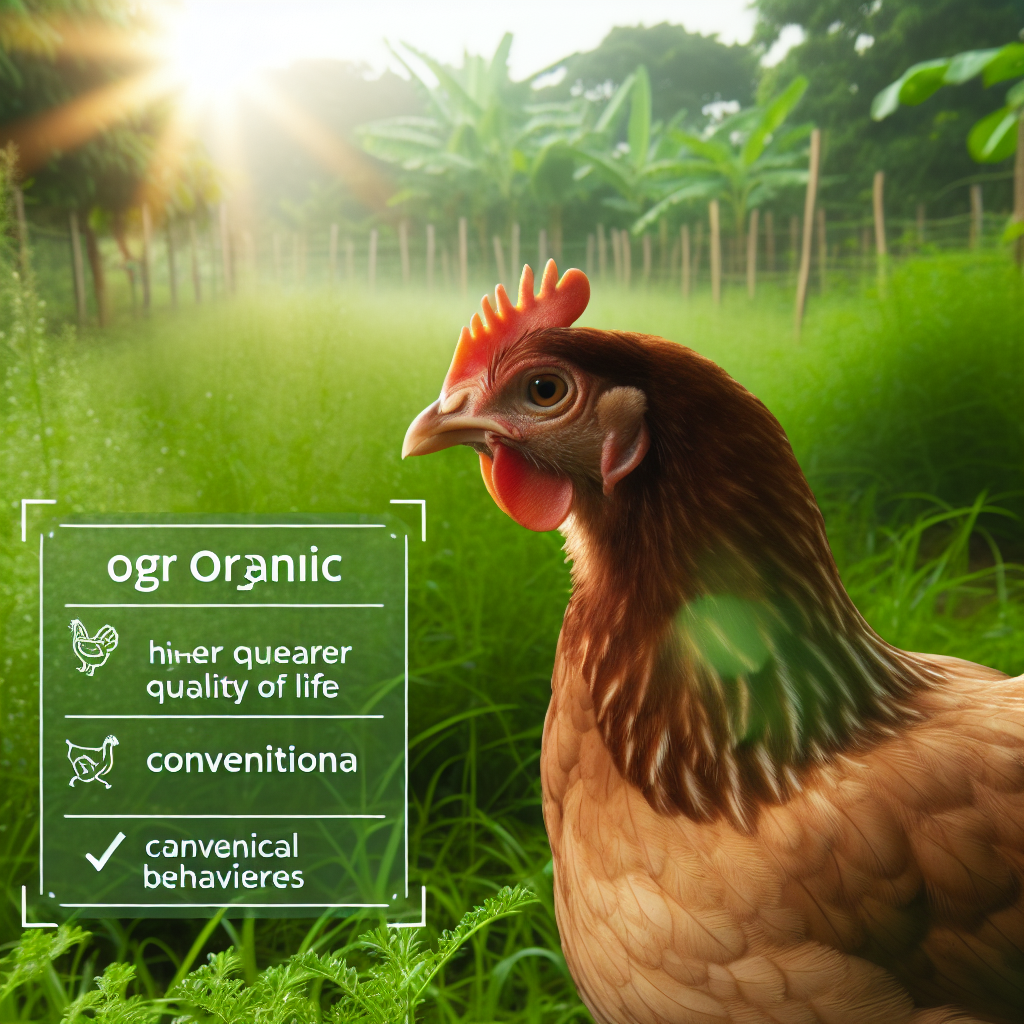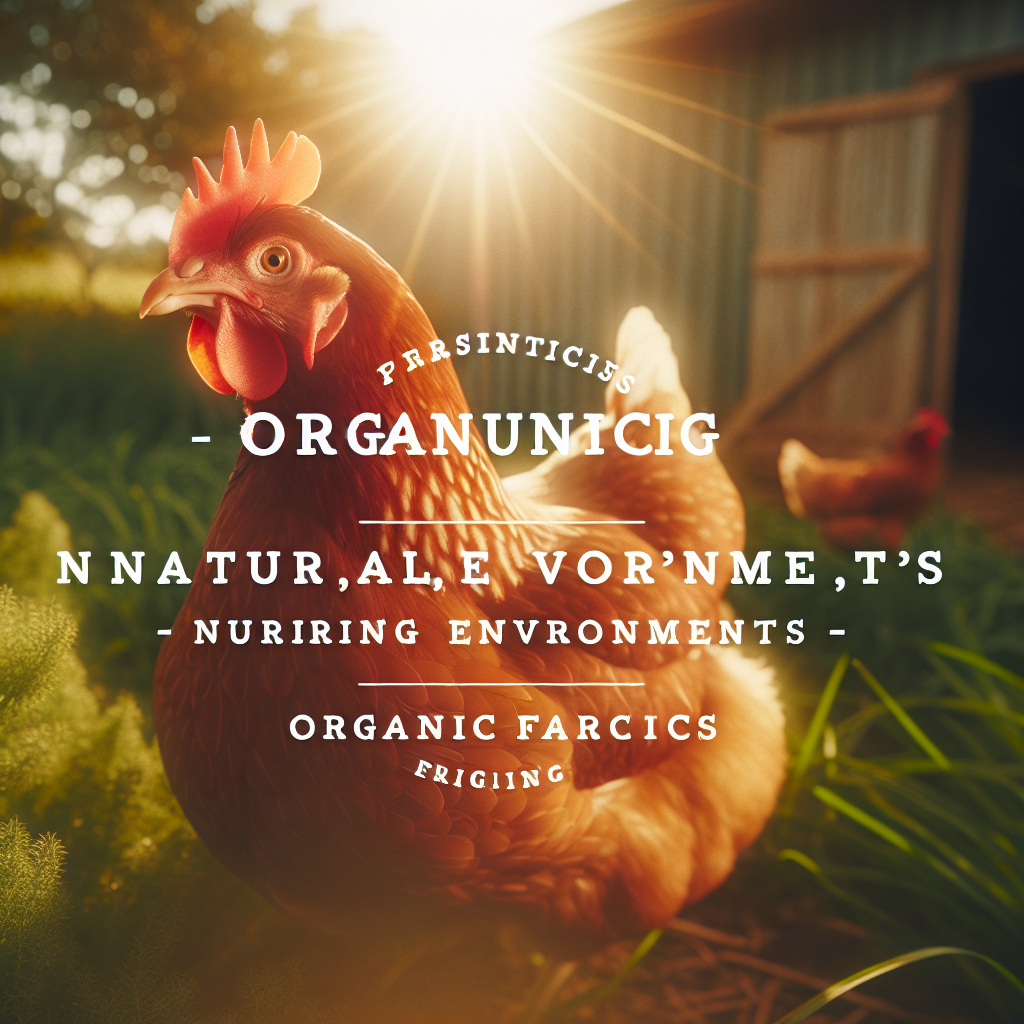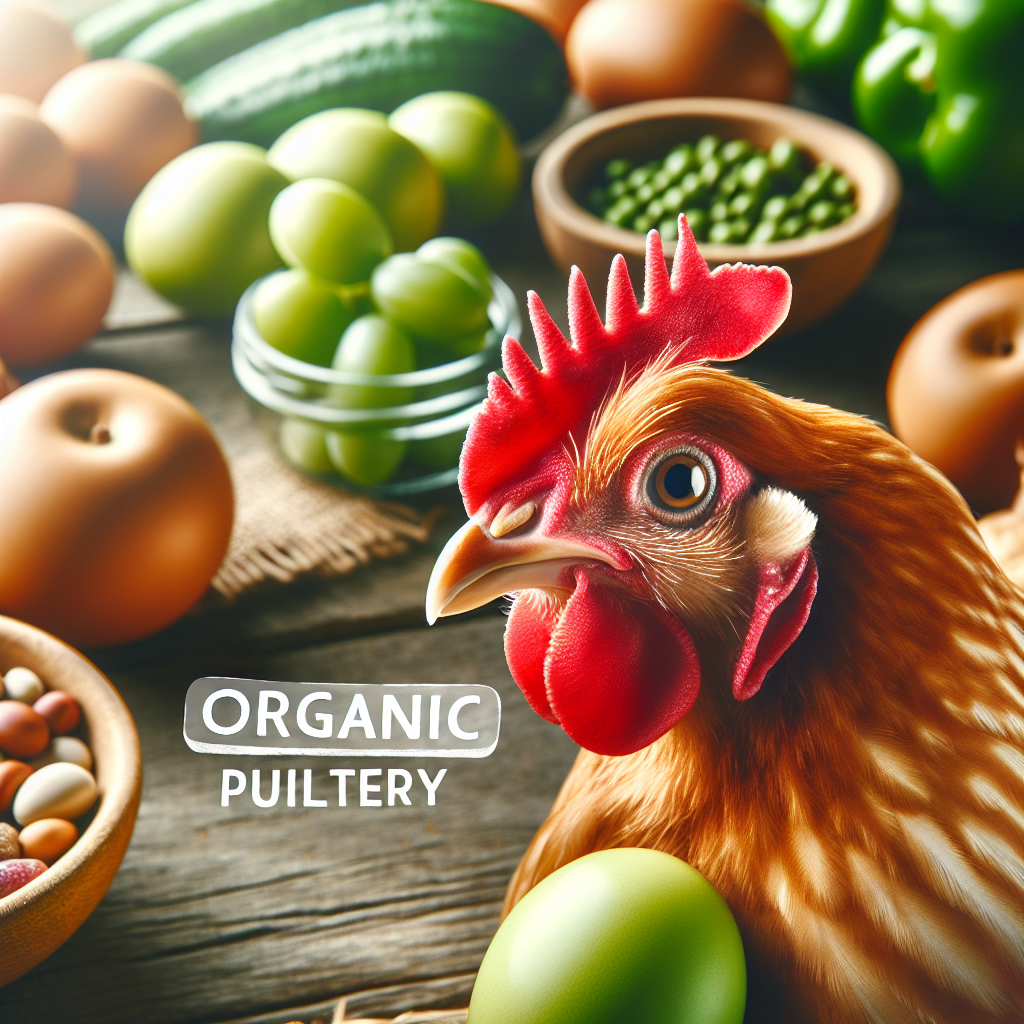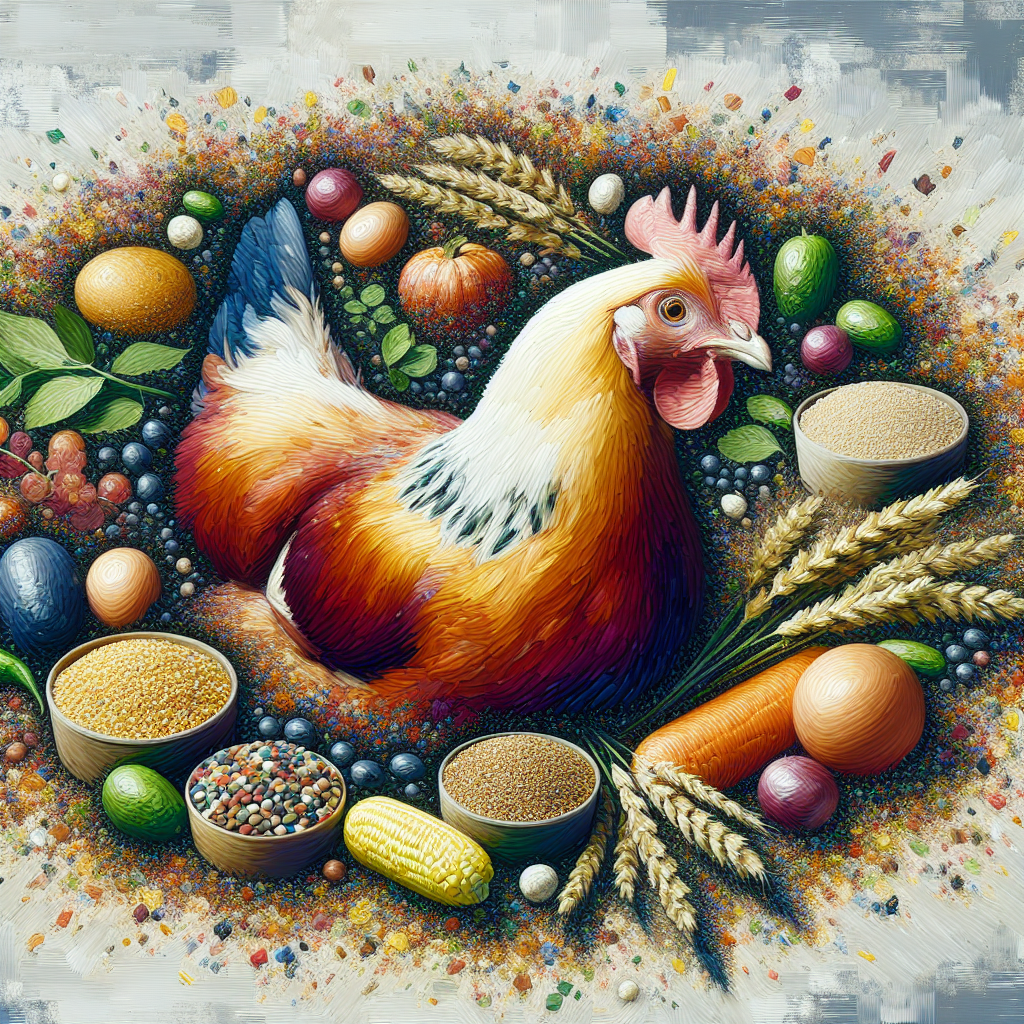In the world of farming, the pursuit of ethical practices has become increasingly important. One industry that has faced its fair share of ethical debates is organic chicken farming. With a focus on sustainability, animal welfare, and environmental impact, organic chicken farming has emerged as an alternative to conventional methods. However, as consumers become more conscious of their choices, questions have arisen regarding the specific ethical considerations tied to this method of poultry production. The ethical implications surrounding organic chicken farming warrant closer examination to determine its true impact on both the welfare of the chickens and the environment.
Environmental Impact
Reduced use of antibiotics and chemicals
Organic chicken farming focuses on reducing the use of antibiotics and chemicals in poultry production. This is important because excessive use of antibiotics can lead to the development of antibiotic-resistant bacteria, posing a threat to both human health and the environment. By adopting organic practices, farmers minimize the reliance on these substances, promoting a more sustainable and balanced ecosystem.
Preservation of natural resources
Another significant environmental benefit of organic chicken farming is the preservation of natural resources. Organic farmers employ methods that prioritize soil health, such as crop rotation and the use of natural fertilizers. These practices help maintain the quality of soil, reduce erosion, and preserve water resources. By minimizing the use of synthetic chemicals, organic chicken farming contributes to the overall health and longevity of our ecosystems.
Reduced greenhouse gas emissions
Organic chicken farming plays a part in reducing greenhouse gas emissions. Conventional livestock production, including chicken farming, contributes to greenhouse gas emissions through various processes such as feed production, animal waste management, and transportation. Organic methods, which prioritize sustainable feed sources and promote natural waste management systems, can help mitigate these emissions. By choosing organic chicken products, you can make a positive impact on our environment and combat climate change.
Animal Welfare
Access to outdoor spaces
Organic chicken farming places high importance on the welfare of animals, providing them with access to outdoor spaces. Chickens raised under organic practices have the opportunity to roam freely outside, pecking at insects and engaging in natural behaviors. This access to outdoor spaces enables the chickens to exhibit their natural instincts and behaviors, resulting in healthier and happier chickens.
No confinement in cages
Unlike conventional chicken farming, which often involves cramped cage systems, organic chicken farming ensures that the chickens are not confined to cages. This practice allows the chickens to move around and express natural behaviors, promoting their physical and mental well-being. By prioritizing spacious and cage-free environments, organic chicken farming ensures that the chickens can live a more comfortable and fulfilling life.
Higher quality of life
Organic chicken farming aims to provide a higher quality of life for the animals. These chickens are raised in environments that prioritize their welfare, allowing them to grow at a natural pace and avoiding stressful conditions. By raising chickens in a more humane way, organic farming contributes to the overall well-being of the animals, ultimately producing healthier and more nutritious chicken products for consumers.
Health and Safety
Lower risk of antibiotic-resistant bacteria
One of the key health benefits of organic chicken farming is the lower risk of antibiotic-resistant bacteria. Overuse of antibiotics in conventional poultry production can lead to the emergence of antibiotic-resistant strains of bacteria, posing a threat to public health. Organic farming restricts the use of antibiotics, promoting healthier chicken populations and reducing the risk of antibiotic resistance in consumer products. By choosing organic chicken, you can minimize the potential health risks associated with antibiotic-resistant bacteria.
Higher nutritional value for consumers
Organic chicken farming prioritizes the welfare and health of the animals, which in turn translates to higher nutritional value for consumers. Chickens raised organically are provided with a balanced and natural diet, resulting in chicken products that are rich in essential nutrients. These chickens are not exposed to synthetic growth promoters or GMO feed, ensuring a more wholesome and nutritious end product for consumers. By opting for organic chicken, you can enjoy the benefits of superior nutritional value and contribute to your overall well-being.
Organic Certification and Standards
Meeting specific organic farming requirements
Organic chicken farming adheres to specific organic farming requirements set forth by certifying bodies. These requirements cover various aspects, including feed sources, animal welfare, and the use of synthetic chemicals. By meeting these stringent standards, organic chicken farmers ensure that their practices align with organic principles and provide consumers with confidence in the organic nature of their products.
Ensuring transparency and accountability
Organic certification adds an additional layer of transparency and accountability to the organic chicken farming industry. Certified organic farmers undergo regular inspections and audits to ensure compliance with organic standards. This process ensures that organic chicken products are traceable, from farm to table, providing consumers with the assurance that they are purchasing ethically produced and genuine organic chicken.
Supply Chain Considerations
Supporting local and sustainable agriculture
Choosing organic chicken products supports local and sustainable agriculture. Organic farming often prioritizes supporting local communities and fostering sustainable agricultural practices. By purchasing organic chicken from local farms, you contribute to the development of a resilient and sustainable food system, supporting local farmers and their communities.
Fair treatment of farmers and workers
The organic chicken farming industry places importance on the fair treatment of farmers and workers within the supply chain. Organic farming systems often involve smaller-scale operations, leading to a closer connection between farmers and consumers. This can result in fairer pricing and improved working conditions for farmers and workers involved in organic chicken production. By choosing organic chicken, you play a part in promoting fair and ethical treatment throughout the supply chain.
Marketing and Consumer Perception
Meeting consumer demand for ethical products
The demand for ethical products, including organic chicken, continues to grow as consumers place more emphasis on sustainability and animal welfare. Organic chicken farming caters to this demand by providing consumers with an ethical choice for their poultry products. By producing and marketing organic chicken, farmers can meet consumer expectations and contribute to a more sustainable and humane food system.
Building trust with customers
Organic chicken farming plays a crucial role in building trust between producers and consumers. By adhering to organic certification standards, farmers can demonstrate their commitment to ethical practices and transparency. This builds a level of trust with customers, who value knowing where their food comes from and how it is produced. By supporting organic chicken farming, you can have confidence in the integrity and ethical standards of the products you consume.
Economic Sustainability
Cost challenges for organic chicken farmers
One of the challenges faced by organic chicken farmers is the higher costs associated with organic production methods. Organic farming practices may require additional investments in infrastructure, organic feed, and labor. These higher costs can create financial challenges for farmers, making it important for consumers to support organic chicken products and contribute to the economic sustainability of the organic farming industry.
Balancing profitability with ethical practices
Achieving a balance between profitability and ethical practices is essential for the economic sustainability of organic chicken farming. Farmers need to ensure that their operations remain financially viable while upholding organic certification standards and maintaining high animal welfare standards. By choosing organic chicken and supporting fair pricing, consumers can contribute to the long-term profitability and viability of organic chicken farming.
Regulatory Compliance
Following organic farming regulations
Organic chicken farmers must diligently follow organic farming regulations to maintain their certification. These regulations govern various aspects of organic farming, including the use of synthetic chemicals, animal welfare, and feed sources. By adhering to these regulations, organic farmers ensure that their practices align with organic principles and provide consumers with truly organic chicken products.
Avoiding deceptive marketing practices
The organic chicken farming industry is committed to avoiding deceptive marketing practices. Organic certification provides consumers with confidence in the authenticity of organic products, ensuring that they are accurately labeled and meet the required standards. By supporting organic chicken farming and purchasing certified organic chicken, you can be confident that you are not falling victim to deceptive marketing practices and are making an informed and ethical choice.
Genetic Modification and Breeding Practices
Potential ethical concerns with genetic modifications
Genetic modification and breeding practices used in conventional chicken farming have raised ethical concerns. Conventional farming often involves selective breeding and genetic modifications to enhance desired traits, such as growth rate. However, these practices may have unintended consequences and result in health issues for the chickens. Organic chicken farming prioritizes natural breeding methods, preserving genetic diversity and reducing the potential ethical concerns associated with genetic modifications.
Preserving genetic diversity
Organic chicken farming plays a role in preserving genetic diversity within the chicken population. By utilizing natural breeding methods and avoiding genetic modifications, organic farmers contribute to maintaining a diverse gene pool. Preserving genetic diversity is crucial for long-term resilience and adaptability within the chicken population, ensuring healthier and more sustainable chicken farming practices.
Community Engagement and Impact
Addressing local community concerns
Organic chicken farming takes into account local community concerns and strives to address them. This can involve implementing sustainable farming practices, minimizing environmental impacts, and engaging with local stakeholders. By actively involving the local community in decision-making processes, organic chicken farmers can foster a positive relationship and contribute to the well-being of the community as a whole.
Contributing to the overall sustainable development
Organic chicken farming contributes to the overall sustainable development of communities. By prioritizing environmental stewardship, animal welfare, and community engagement, organic farmers support the long-term well-being of both current and future generations. Organic chicken farming practices can serve as a model for sustainable agriculture, promoting holistic approaches that benefit the environment, animal welfare, human health, and local communities.
In conclusion, organic chicken farming encompasses various ethical considerations. From reducing the use of antibiotics and chemicals to promoting animal welfare and sustainable practices, organic farming offers a more ethical and sustainable approach to chicken production. By supporting organic chicken products, consumers can contribute to a healthier environment, improved animal welfare, and a more sustainable food system. Additionally, organic certification ensures transparency, accountability, and trust between consumers and producers. Organic chicken farming plays a vital role in fostering a more ethical and sustainable future for both chickens and humans.




